CUA Thomas Aquinas Moral Theology Collection (8 vols.)
Digital Logos Edition
Overview
Get insightful answers to ethical questions facing Catholics today, based on the wisdom of Saint Thomas Aquinas, Doctor of the Church. Learn about the development and influence of Catholic moral teaching over the centuries, especially through the writings of the Angelic Doctor. Examine questions of law and punishment, good and evil, and emotion and ethics. Leading Catholic scholars comment on Aquinas’ theology, presenting complex topics in accessible ways. You’ll discover new depths of understanding in Catholic moral theology.
In the Logos editions, these volumes are enhanced by amazing functionality. Scripture citations link directly to English translations, and important terms link to dictionaries, encyclopedias, and a wealth of other resources in your digital library. Perform powerful searches to find exactly what you’re looking for. Take the discussion with you using tablet and mobile apps. With Logos Bible Software, the most efficient and comprehensive research tools are in one place, so you get the most out of your study.
Deepen your study of Aquinas’ theology with the Summa Theologica: English and Latin Bundle.
Key Features
- Presents the teachings of Thomas Aquinas, Doctor of the Church
- Answers ethical questions facing Catholics today
- Offers insights from leading Catholic scholars
Product Details
- Title: CUA Thomas Aquinas Moral Theology Collection
- Publisher: Catholic University of America
- Volumes: 8
- Pages: 2,138
- Christian Group: Catholic
- Resource Type: Topical
- Topic: Theology
Individual Titles
- Aquinas on Human Action by Ralph McInerny
- By Knowledge and by Love: Charity and Knowledge in the Moral Theology of St. Thomas Aquinas by Michael S. Sherwin
- Ethica Thomistica, rev. ed. by Ralph McInerny
- Good and Evil Actions: A Journey through Saint Thomas Aquinas by Steven J. Jensen
- Perfecting Human Actions: St. Thomas Aquinas on Human Participation in Eternal Law by John Rziha
- St. Thomas Aquinas and the Natural Law Tradition: Contemporary Perspectives by John Goyette, Mark S. Latovic, and Richard S. Meyers
- The Logic of Desire: Aquinas on Emotion by Nicholas E. Lombardo
- Thomas Aquinas and the Philosophy of Punishment by Peter Karl Koritansky
This title is included in the following collections
You can save when you purchase this product as part of a collection.
Verbum 9 Diamond Legacy Librar...
$2,999.99$2,999.99Verbum 9 Portfolio Legacy Libr...
$4,749.99$4,749.99Verbum 9 Ultimate Legacy Libra...
$7,749.99$7,749.99Logos 9 Ultimate Legacy Librar...
$24,999.99$24,999.99
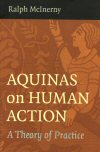
A patient and faithful treatment of Thomistic texts, this volume presents a systematic and unified picture of Aquinas’ theory of moral agency as it relates to human action. Focusing especially on the Summa Theologiae, Ralph McInerny carefully argues that Aquinas’ theory of moral action stands up to contemporary needs and remains adequate against contemporary criticism. This lively and incisive study by a first-rate scholar demonstrates a breadth of knowledge of Aquinas in a novel, yet scholarly, fashion.
Writing with admirable clarity, McInerny has produced a text faithful to the rigor of Aquinas’ thinking and intelligible even to people with no special philosophical background. Aquinas would surely have approved.
—International Philosophical Quarterly
Simple while sophisticated, rigorous while engaging, introductory while leading one into the very heart of human action as Aquinas assimilates Aristotle and Augustine—all these qualities characterize this book by a master practitioner of moral philosophy.
—Journal of Theological Studies
A standard exposition of Aquinas’ theory of moral action. McInerny covers themes such as human acts, happiness and the good, the structure of the moral act, freedom and coercion, means and ends, exterior and interior acts, the place of reason, conscience, natural law, and practical reasoning. . . . [McInerny] makes an excellent case for the restoration of the authority of Thomas Aquinas to a prominent place in contemporary ethical theory, especially among moral theologians.
—Thomist
Ralph McInerny was Michael P. Grace Professor of Medieval Studies in the department of philosophy at the University of Notre Dame. He cofounded Crisis magazine and was author of several books including the bestselling Ethica Thomistica, as well as The Question of Christian Ethics, Boethius and Aquinas, and Praeambula Fidei.
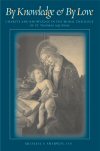
What is the relationship between charity and knowledge in the theology of Thomas Aquinas? Did Aquinas, in his mature thought, portray charity’s act as antecedent to and independent of practical reasoning? Did he view charity’s motion as rendering us morally good before God, apart from whether or not we do what is right in our actions? A dominant stream in contemporary Catholic ethics holds for precisely such a concept of charity, and many recent commentators on Aquinas maintain that this is his position as well. According to Michael S. Sherwin however, the contrary is in fact the case.
By Knowledge and By Love is a major contribution to Thomistic moral theology and philosophy by providing a thoughtful examination of Aquinas’ psychology of action and his theology of charity. Through a comprehensive analysis of the relation between intellect and will, knowledge and love, and charity and the infused intellectual virtues, Sherwin concludes that, far from divorcing the will from reason, Aquinas in his later works integrates reason and will more closely together.
Saint Augustine says, “No one can love what he does not know.” According to Sherwin, Aquinas holds that God’s grace respects and elevates this dynamic in the gift of charity, which depends on faith’s knowledge, and on the knowledge provided by the other infused cognitive virtues and gifts. Charity is a virtue, and like any virtue its acts require some knowledge of their object. Sherwin argues that not only is this a faithful reading of Aquinas, it also has profound implications for any conception of moral development. The role of a mentoring community, the characteristics of friendship with God, and the specific actions required by love all play a part in Sherwin's analysis.
This book was the winner of the 2006 Charles Cardinal Journet Prize awarded by the Aquinas Center for Theological Renewal at Ave Maria University.
By Knowledge and by Love is as readable as it is learned. Serenely and evenhandedly, Michael Sherwin leads us to see how, for St. Thomas, charity is both a matter and a mover of choice; how, being free, it must be intelligible; how, enlivening the heart, it must also steer counsel and rectify conduct. There should be no more talk of a Thomas who detaches will from reason.
—Stephen L. Brock, professor of Medieval philosophy, Pontifical University of the Holy Cross
Sherwin’s work makes important contributions to contemporary Christian ethics. . . . He examines, in a new way, various resources throughout Thomas’ corpus and presents a helpful synthesis of his considered position as expressed in the Summa theologiae.
—Stephen J. Pope, professor of theology, Boston College
This text reminds the reader of the continued importance of Aquinas’ work for contemporary considerations of the moral life.
—Mary Jo Iozzio, Theological Studies
Michael S. Sherwin, OP, is associate professor of fundamental moral theology at the University of Fribourg, Switzerland.
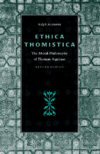
First published 15 years ago, Ethica Thomistica is widely recognized as one of the finest introductions to St. Thomas’ moral philosophy. Though the book has been out of print for several years, scholars and students still refer to it as the standard resource on Thomistic ethics. In this much-anticipated, revised edition, Ralph McInerny revisits the basics of Thomas’ teachings and offers a brief, intelligible, and persuasive summary.
Remarkable for its moderation and common sense. . . . [McInerny] rapidly sketches selected themes from Thomistic moral thinking: what distinguishes the moral activities of man, what is distinctive of moral goodness (in Aristotle and in Aquinas), an analysis of practical reason in relation to natural law, the bases for judging good and evil moral actions, the roles of intellect and will in voluntary activity, the work of virtues as components of moral character, the functions of prudence and conscience, and finally the relation of ethics to religious belief. . . . For the person who desires a quick and understandable introduction to this subject, this little book can be recommended as readable and reliable.
—Vernon J. Bourke, Speculum
An important contribution both to moral philosophy and to its teaching. . . . [McInerny] has put us all in his debt by writing it.
—Alasdair MacIntyre, Teaching Philosophy
A clear, thorough and readable introduction to the thought of one of the intellectual giants of the Catholic moral tradition.
—National Catholic Register
Ralph McInerny was Michael P. Grace Professor of Medieval Studies in the department of philosophy at the University of Notre Dame. He cofounded Crisis magazine and was author of several books including the bestselling Ethica Thomistica, as well as The Question of Christian Ethics, Boethius and Aquinas, and Praeambula Fidei.

Modern philosophy has long dismissed the traditional moral notion that some actions are inherently good or evil, claiming rather that actions lack clear boundaries and have no set nature, whether good, evil, or otherwise. We might expect to find resources to rebut these consequentialist assertions in the perennial philosophy of St. Thomas Aquinas. Unfortunately, the analysis of the moral species within Aquinas confounds even the most resolute. Thomists are far from unanimity on the very questions at issue, such as the role of intention in moral judgment and the importance of the exterior or "physical" act. One influential reading of Aquinas assigns intention a central role; another extols a return to teleology and to the physical nature of the action.
In Good and Evil Actions, Steven J. Jensen navigates a path through the debate, retrieving what is of value from each interpretation. Intention receives its proper due, while leaving room for physical causality and teleology. Jensen provides a novel explanation of self-defense and develops a much needed account of the dignity of the human person. With exceptional clarity, he identifies the essential issues, resolves conflicting views, and reveals the truth as conveyed by Aquinas.
An extraordinarily clear and complete synthesis of the philosophy involved in St. Thomas’ understanding of the specification of human acts. Jensen delivers a compact presentation both of Thomas’ thought on the topic and of the main current interpretations thereof.
—Stephen L. Brock, professor of Medieval philosophy, Pontifical University of the Holy Cross
A significant original contribution to a currently robust conversation in contemporary ethical debates. Jensen offers a novel interpretation of Aquinas's position on how to define an act as good or bad.
—Thomas A. Cavanaugh, professor of philosophy, University of San Francisco
[The book] brings clarity to an ongoing contemporary debate on the specificity of human actions. The author offers a convincing interpretation of Aquinas’ positions.
—Lucien J. Richard, OMI, Catholic Library World
Steven J. Jensen is associate professor of philosophy at the University of St. Thomas in Houston and specializes in the areas of ethics and medieval philosophy.
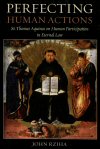
During the last few centuries, a practical dichotomy between God and humanity has developed within moral theory. As a result, moral theory tends to focus only on humans where human autonomy is foundational or only on God where divine commands capriciously rule. However, the moral theology of Thomas Aquinas overcomes this dichotomy. For Thomas, humans reach their perfection by participating in God’s wisdom and love.
Perfecting Human Actions explores the ways humans participate in eternal law—God’s wisdom that guides and moves all things to their proper action. The book begins with a thoughtful examination of the philosophic recovery of the notion of participation in Thomistic metaphysics. It then explains Thomas’ theological understanding of the notion of participation to show how humans are related to God. It is discovered that when performing human actions, humans participate in the eternal law in two ways: as moved and governed by it, and cognitively.
The book concludes by showing how the notion of human participation in the eternal law is a much better foundation for moral theory than the contemporary notion of autonomy.
[A] competent and indeed masterful study. . . . Rziha’s book is to be welcomed as not just an important, but indeed an overdue contribution to the contemporary recovery of Aquinas’s moral theory. More importantly, this study is of surpassing importance in advancing the correct understanding of the relationship between human freedom and natural law. . . . Rziha’s lucidly written and well-documented study displays all the characteristics of a competent and learned interpretation of the thought of the doctor communis according to the highest standards of current Aquinas scholarship.
—Reinhard Hutter, Thomist
Rziha explores at length the two modes by which human participate in God’s eternal law: as moved and governed by it and as having knowledge of it. . . . [T]his book proves to be something of a comprehensive course in Thomistic thought. This project is supported by extensive and meticulous footnote reverences to texts of Aquinas.
—Janine Marie Idziak, Speculum?
John Rziha is associate professor of theology at Benedictine College.
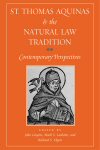
In recent years, there has been a great revival of interest in natural law, one that has occurred across a range of disciplines and perspectives—from the philosophical and theological to the most contemporary debates in the area of legal and political philosophy. Much of this recent work is traced to the thought of St. Thomas Aquinas. To explore and evaluate the current revival, this volume brings together many of the foremost scholars on natural law. They examine the relation between Thomistic natural law and the larger philosophical and theological tradition. Furthermore, they assess the contemporary relevance of St. Thomas’ natural law doctrine to current legal and political philosophy.
The book contains an extensive introduction to the topic, followed by four sections that treat various aspects of natural law thinking. The first section examines some of the philosophical foundations of natural law, especially the understanding of nature it presupposes. The second section is devoted to the theological context in which St. Thomas’ natural law doctrine is situated. The essays in the third section discuss the new natural law theory espoused by Germain Grisez and John Finnis and the hotly debated question as to whether their theory is genuinely Thomistic. The final section explores several contemporary legal and political issues in light of St. Thomas’ natural law philosophy.
[A] fine collection of papers.
—James F. Keenan, SJ, Theological Studies
John Goyette is a tutor at Thomas Aquinas College.
Mark S. Latovic is professor of moral and systematic theology at Sacred Heart Major Seminary in Detroit.
Richard S. Meyers is professor of law at Ave Maria School of Law.
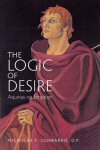
When Thomas Aquinas completed his Treatise on the Passions, it was likely the longest sustained discussion of the emotions ever written. His influence on medieval and early modern philosophy was enormous, overshadowing every other medieval author on the topic of emotion. Although Aquinas’ account of emotion merits attention for its historical significance and enduring value, it remains neglected by philosophers and theologians.
With emotion emerging as a focus of interest in many disciplines, the time is ripe for a reconsideration of Aquinas’ contribution. Desire and emotion are central to Aquinas’ theological project, and his views on many topics, including the relationship between cognition and emotion, show remarkable prescience in the light of recent developments. Emotion is particularly important to his understanding of virtue and vice. Focusing on the Summa Theologiae, Nicholas Lombardo contributes to the recovery, reconstruction, and critique of Aquinas’ account of emotion in dialogue with both the Thomist tradition and contemporary analytic philosophy. It considers Aquinas’ thought on emotion in its historical context and inner logic, and shows how it bears on larger issues in his anthropology and ethics.
Nicholas Lombardo’s beautifully argued and carefully documented book is a persuasive retrieval of what St. Thomas himself obviously regarded as essential to our understanding of the moral and spiritual life—even more important now than in his own day.
—Fergus Kerr, OP, honorary fellow, School of Divinity, University of Edinburgh
This book is a fine and much needed retrieval of what constitutes emotion in the writings of Thomas Aquinas, bringing precision and clarification where it was previously wanting. At the very least, Lombardo’s careful work will demand attention from anyone who writes in this area of Thomas’ thought in the future.
—The Thomist
Nicholas E. Lombardo is a Dominican priest engaged in research at the University of Fribourg in Switzerland.
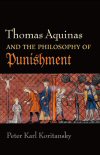
Thomas Aquinas and the Philosophy of Punishment explores how Aquinas’ understandings of natural law and the common good apply to the contemporary philosophical discussion of punitive justice. It is the first book-length study to consider this question in decades, and the only book that confronts modern views of the topic.
Peter Karl Koritansky presents Aquinas’ theory of punishment as an alternative to the leading schools of thought that have dominated the philosophical landscape in recent times, namely, utilitarianism and retributivism. After carefully examining each one and tracing its roots back to Immanuel Kant and Jeremy Bentham, Koritansky concludes that neither approach to punitive justice is able to provide a philosophically compelling justification for the institution of punishment. He explains how St. Thomas approaches the same philosophical questions from a markedly different set of assumptions rooted in his theory of natural law and his understanding of the common good.
Not without its own difficulties, Aquinas’ approach offers a rationale and justification of punishment that is, Koritansky argues, much more humane, realistic, and compelling than either contemporary school is able to provide. Koritansky distinguishes his reading of the Angelic Doctor from that of other interpreters who tend to conflate Aquinas’ teaching with various aspects of recent thought. A final chapter considers the death penalty in John Paul II’s Gospel of Life and debates whether current Catholic teaching about the death penalty conflicts with Aquinas’ arguments in favor of the death penalty.
Koritansky provides a patient, thorough, learned, and balanced treatment of Aquinas’ thought on punishment. This book makes an important contribution to contemporary efforts to interpret and analyze Aquinas’ political thought and to current studies on the theory of punishment across various schools of thought. The scholarship is exemplary.
—Mary M. Keys, associate professor of political science, University of Notre Dame
Peter Karl Koritansky is assistant professor of philosophy and religion at the University of Prince Edward Island.